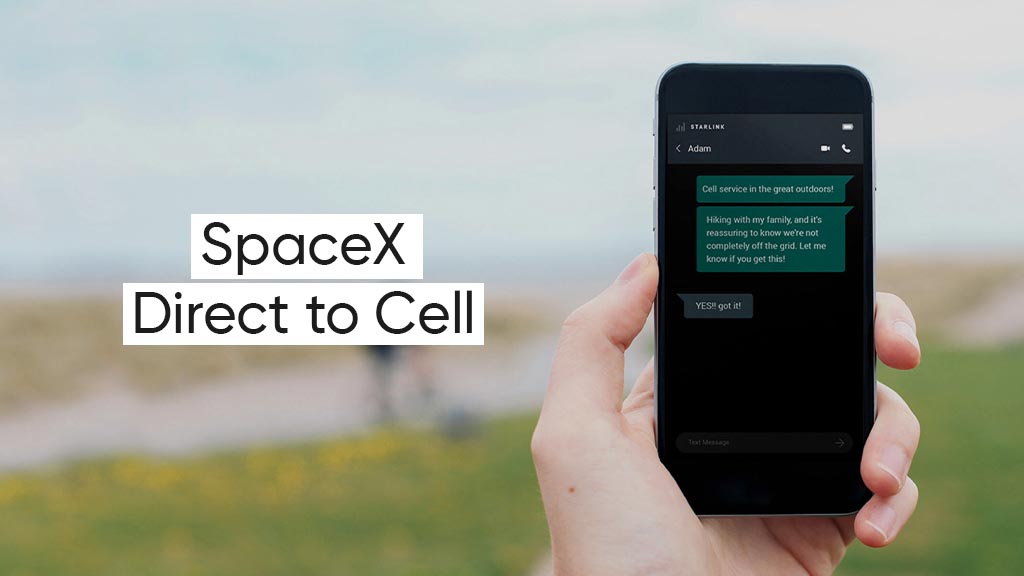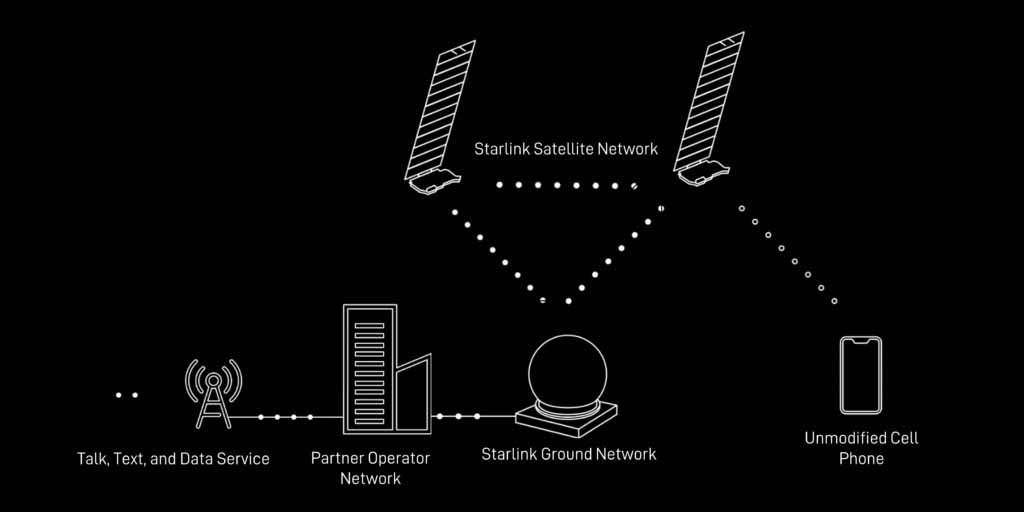SpaceX
SpaceX and T-Mobile tests first Text Messages via Direct to Cell Starlink satellites

SpaceX today announced that it has successfully tested the new Direct to Cell satellites to send and receive text messages using the T-Mobile. This test will pave the way for a broader rollout of satellite-based mobile services for smartphones and other devices.
SpaceX started 2024 by launching six of the first-generation Direct to Cell satellites. It was followed by a preliminary test of connection streaming and technology verification.
On January 8, SpaceX conducted real-time text messaging using the Direct to Cell satellites over the T-Mobile network spectrum.
The company said that the task involved an unmodified smartphone, it can be referred to as a consumer-grade phone or not the one specialized for such testing.
New Technologies:
There are several key challenges in transmitting sufficient radio signals to and from smartphones that aren’t designed to connect to satellites, with very low gain antennas and transmission power (max 0.2 Watts).
To achieve this requirement, SpaceX developed custom silicon onboard the satellite that is optimized for this application and reduces power and cost on the satellite.
SpaceX also brought large 2.7 m x 2.3 m advanced phased arrays that use extremely sensitive radio receivers and high-powered transmitters for communicating with smartphones from space.
Latency:
Latency is another important aspect of delivering fast network connections and the new Direct to Cell satellites use a system that includes satellite altitudes, beam size and placement, elevation angles, and several satellites to make the entire satellite constellation work like a cell tower in the space and deliver strong signals.

Service Launch:
It’s revealed that the Direct Cell text messages service will kick off this year. This will be followed by voice, data, and Internet of Things (IoT) services in 2025.
Global partners:
Other than T-Mobile, SpaceX has already partnered with numerous global mobile service providers including Rogers in Canada, Optus in Australia, One New Zealand, KDDI in Japan, Salt in Switzerland, and Entel in Chile & Peru.
All of these have confirmed launching the Direct to Cell mobile services in their operating markets.
Future:
SpaceX is planning to grow the direct to cell satellites to over 100 in the low-Earth orbit and future payloads are likely to be sent with the Starship vehicle.
(source – SpaceX)












